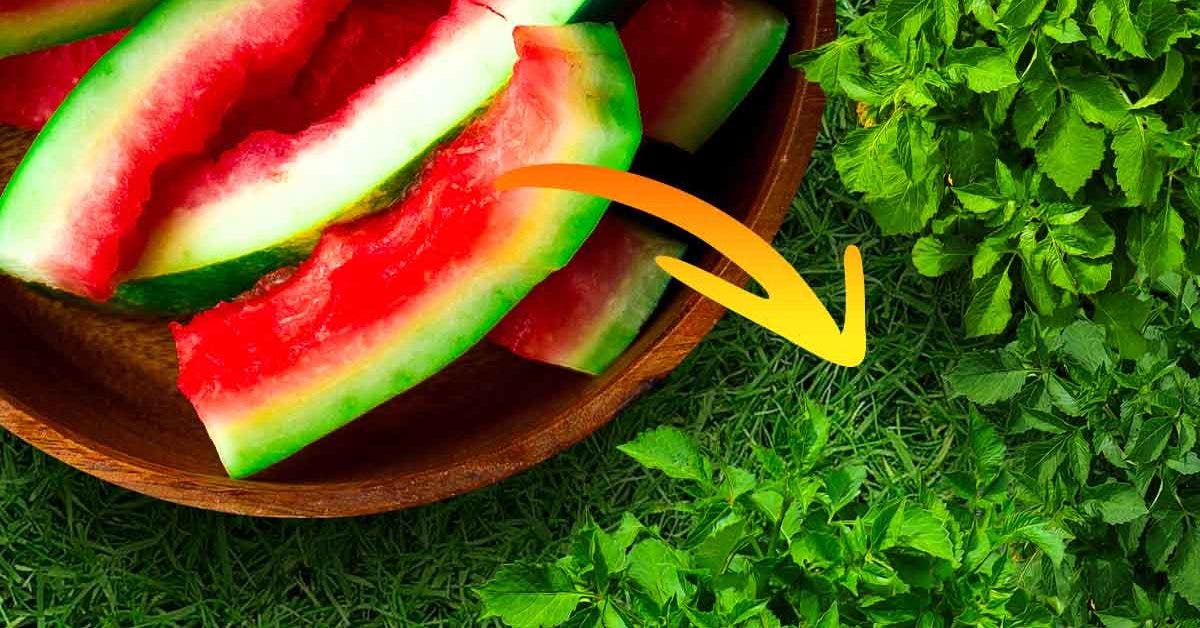Scatter watermelon rinds in your garden in the evening and find out what happens in the morning
From April to June, and sometimes even throughout the summer, our gardens are full of snails who feast on all the fresh greenery. If they are touching and very appreciated by children, they are nevertheless the worst nightmare of gardeners. And for good reason, among all the harmful insects, they are surely the ones that cause the most damage to our crops. Do you have an infestation of snails and slugs in your vegetable garden and you don’t know how to get rid of it? Have you considered watermelon rinds? Quickly discover this very promising tip and a whole range of effective remedies to ward off these undesirables.
Members of the phylum family of molluscs, garden snails are known to ravage plants, and plants, of which they regularly chew the leaves of the outer layer. Result: the plantations are often in a deplorable state. To avoid all this intense damage to your crops, our tips will make your life easier!
Why should you scatter watermelon peels in your garden?
A snail in the garden – Source: spm
Summer fruit par excellence, watermelon is on all tables right now. As tasty as it is refreshing and full of vitamins, it is also an absolute weapon for fighting garden snails. Indeed, its bark is ideal for trapping all these pests which represent a real danger for market garden crops. And this, because of their sweet and enticing smell. Watermelon rinds are thus like bait that attract snails and slugs.
It is best to scatter the rinds in the garden in the evening. So all the snails will gather in one place in the morning. In this way, you will get rid of them very easily without even using chemicals that are dangerous for the environment and for these insects.
NB: you don’t have watermelon in the kitchen? Melon skin will have a similar effect.
A snail on a plant – Source: spm
- Wood ash mixed with coffee grounds
This is a very effective ecological remedy to keep snails away from your plants. Mix wood ash with coffee grounds. Place this natural compost around the plants most at risk, or along the perimeter of the garden, if it is not too large. This will immediately block: because snails hate crawling on rough areas.
-
Chopped egg shells
-
Powdered sulfur is an organic product: in addition to being an effective fungicide, it is also an excellent natural repellent for many garden insects, such as whiteflies and red mites. So, thanks to this remedy, it will be very easy to create a protective barrier against snails and slugs along the perimeter of the garden. This is enough to dissuade them from approaching the plants!
NB: be careful, make sure that the powdered sulfur is 100% pure so as not to damage your crops.
Chemicals and pesticides
In the same line as the previous solution, use chopped eggshells to discourage them from approaching plants. Sprinkle well around plants that are often infested with insects. As you can imagine, this makes the terrain impervious to the slug’s pasty body. As they will have difficulty crawling, they will no longer be able to venture around and will thus leave your plants alone.
Sulfur powder
Finally, some conventional pesticides will also do the job perfectly. You may choose to use a pest control spray to repel slugs and snails. However, it is not recommended to spray it directly on the crops, as it can burn the leaves of the plants. So be very careful! If you prefer another natural alternative: salt is also an ideal solution to kill slugs and snails. Other compounds like chlorine (bleach), aluminum sulphate and potassium permanganate will also act as powerful pesticides.
NB: Be careful with the use of salt, apply sparingly, as it can harm other plants and creatures.
Read also Here is how to make a natural fertilizer with orange peel




